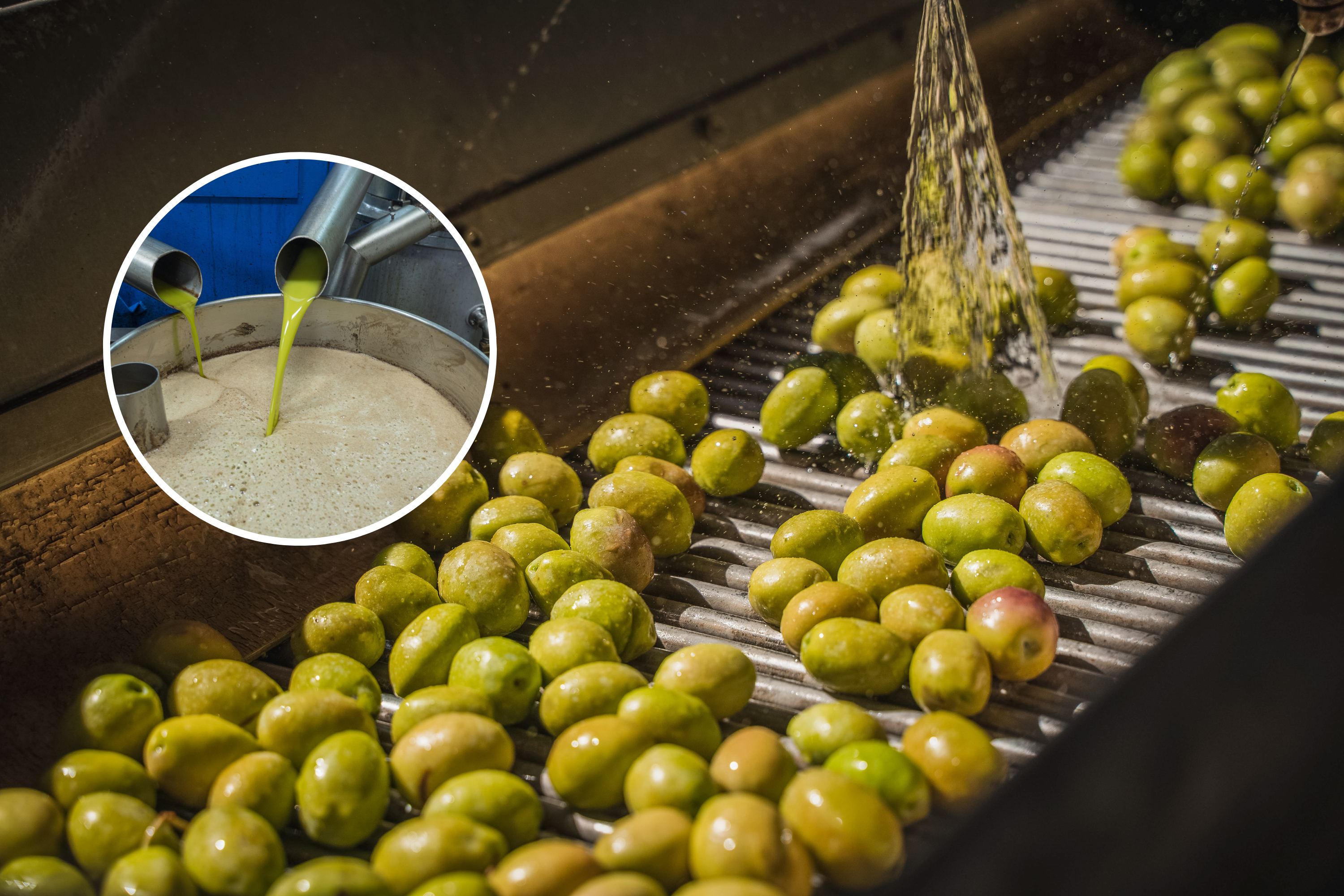Liquid that is produced when olives are turned into olive oil could offer major health benefits, but it is currently being thrown away and damaging the environment.
Olive mill wastewater (OMW) is produced when olives are washed, crushed, mixed with water, and the oils extracted, leaving an array of byproducts, including OMW: a dark bitter, acidic liquid with an intense odor.
OMW contains a very high level of nutritional compounds that pose a risk to the environment—killing plants and microorganisms, and upsetting the balance of ecosystems in rivers, lakes and soils—but could offer major benefits to human health.
“The exciting thing about olive mill wastewater is it takes something that was a waste, costing money to treat, to dispose of, and turns it into something useful, and even something profitable,” nutrition scientist Dr. Emma Beckett, of the University of New South Wales, told Newsweek.
oztekinirfan / ancoay/Getty Images / Canva
“The power of the OMW is in the bioactives; they are the chemicals in foods that have health benefits but aren’t essential nutrients.
“Olives have lots of these, and these are part of why olive oil is good for us, but lots are water soluble, and are left in this waste.”
Olive oil has been linked with a variety of health benefits because of these bioactive compounds, particularly as a significant part of the Mediterranean diet, associated with longevity and a reduced risk of diseases linked to inflammation, including obesity, type 2 diabetes, various cancers, and heart disease.
“We get bioactives from all our fruits, vegetables and wholegrains, so whether or not we need OMW is debatable,” said Beckett. “But humans generally aren’t eating enough plant foods for health, so my mind is open to options that motivate people to access bioactives.”
OMW contains many of the same compounds as olive oil, sometimes in much higher amounts.
For instance, many of olive oil’s benefits are believed to come from antioxidants, such as phenols, which can be toxic in large amounts, but are also known to reduce oxidative stress in the body: a key risk factor for inflammatory diseases.
Virgin olive oil contains just two percent of the phenols found in fresh olives—while OMW contains up to 53 percent, so it may be a more powerful antioxidant than the oil.
“Research into olive oil waste has definitely grown as the popularity of olive oil has grown,” said Beckett.
Plus, OMW contains high levels of other antioxidant compounds—such as tannins, anthocyanins and flavonols—and essential minerals such as potassium, calcium, magnesium and iron.
Beckett said that OMW was already being sold as a health tonic shot, but that its future popularity might depend more on marketing than science.
“I haven’t tasted it but imagine, based on what’s in it, that it’s not very tasty, so to sell it you need to blend it to cover the taste, or leverage the intuition that we have that says health foods will taste bad,” she said.
“OMW sits in a weird space between foods and supplements. It’s concentrated, but it’s not a supplement, so it will be interesting to see how people market it.”
There’s an alternative to just drinking OMW too. Food manufacturers could extract bioactive compounds from it and add them to processed foods, to boost their nutritional profile and extend shelf life.
Some research has even indicated that OMW could be an effective pesticide, killing weeds and harmful microorganisms in the soil without damaging crops—but it would have to be used in small amounts to avoid damaging the environment.
Beckett said that, if OMW became more popular, she might end up trying it herself.
“Never say never!” she said. “I support the valorization aspect and believe, to feed the world in a nourishing way as the population keeps growing, we do need to challenge our standard beliefs about what food and drink are.
“But I wouldn’t support it—or anything—becoming the next silver bullet of food fads, because that bubble will always burst.”
Do you have a tip on a food story that Newsweek should be covering? Is there a nutrition concern that’s worrying you? Let us know via science@newsweek.com. We can ask experts for advice, and your story could be featured in Newsweek.
Reference
Foti, P., Romeo, F. V., Russo, N., Pino, A., Vaccalluzzo, A., Caggia, C., Randazzo, C. L. (2021). Olive Mill Wastewater as Renewable Raw Materials to Generate High Added-Value Ingredients for Agro-Food Industries, Applied Sciences 11(16). https://doi.org/10.3390/app11167511
Azzam, M. O. J., Hazaimeh, S. A. (2021). Olive mill wastewater treatment and valorization by extraction/concentration of hydroxytyrosol and other natural phenols, Process Safety and Environmental Protection 148. https://doi.org/10.1016/j.psep.2020.10.030
